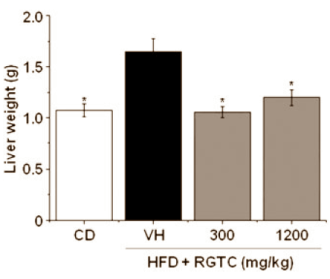|
Definition: "An ergogenic aid is any substance or phenomenon that enhances performance "
|
|
||||||||
26.08.2011 |
|
|
Grape extract, green tea and L-carnitine slimming stack effective in animal study
A cocktail of red grapes and green tea extracts combined with L-carnitine is added to more expensive pet foods for older dogs and cats. And no doubt there are slimming supplements for humans on the market that also contain the mixture. If you are a user of these products, you can breathe easy: according to Korean research, soon to be published in Phytotherapy Research, they are effective.
Study
The Koreans took three nutrients known to be effective individually to see how they work in combination. L-Carnitine sluices fatty acids in cells into the mitochondria where they are converted into energy. If you read the textbooks, L-carnitine is as strong a supplement as creatine. But in practice it's not.
Extracts of green tea contain phenols like EGCG. These inhibit the breakdown of pep-hormones like adrenalin and inhibit the growth of fat cells. The Koreans' extract contained almost 60 percent EGCG.
Resveratrol, a phenol in red grapes, is a more effective fat-cell inhibitor than EGCG in test tube experiments, but in the body enzymes attach all kinds of sugar and sulphur groups to resveratrol really fast. And this may block the effect of the substance. The grape extract that the Koreans used consisted of 5 percent resveratrol.
The ratio (in grams) of the grape extract-green tea extract-L-carnitine mixture was 1: 0.6 : 0.5.
The Koreans first gave young mice normal feed [CD] or feed containing extra sugar and fat [HFD] for three weeks. The HFD mice put on weight fast. Some of the HFD animals were then given 300 mg per kg bodyweight of the cocktail for eight weeks, through a feeding tube. Another group of the mice was given 1200 mg daily.
Results
The researchers speculate that the components in the cocktail have a mutually reinforcing effect on each other, but unfortunately they didn't measure the effect of the components individually.
Conclusion
The study was funded by the Korean government.
Source:
More:
|
|




